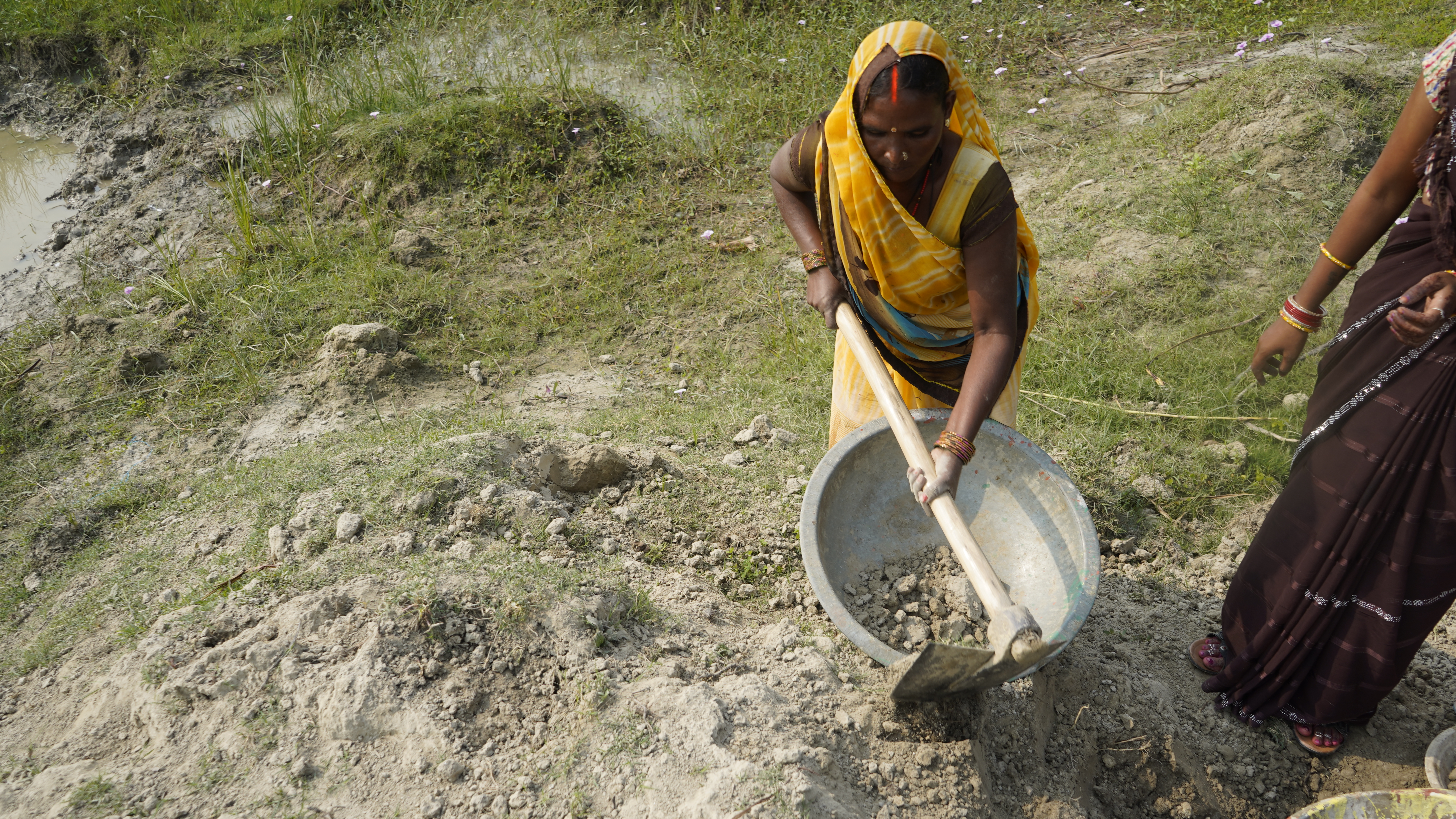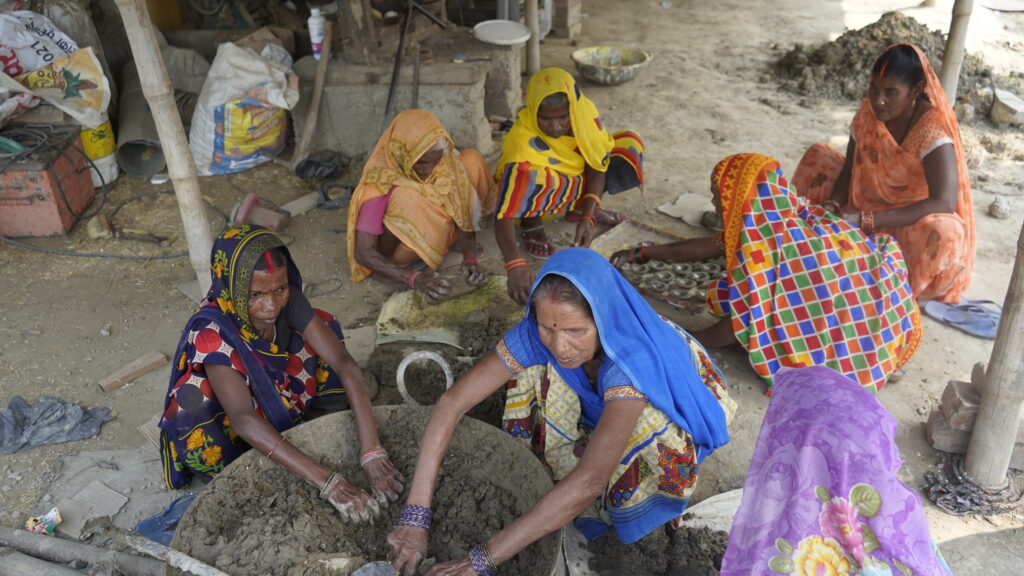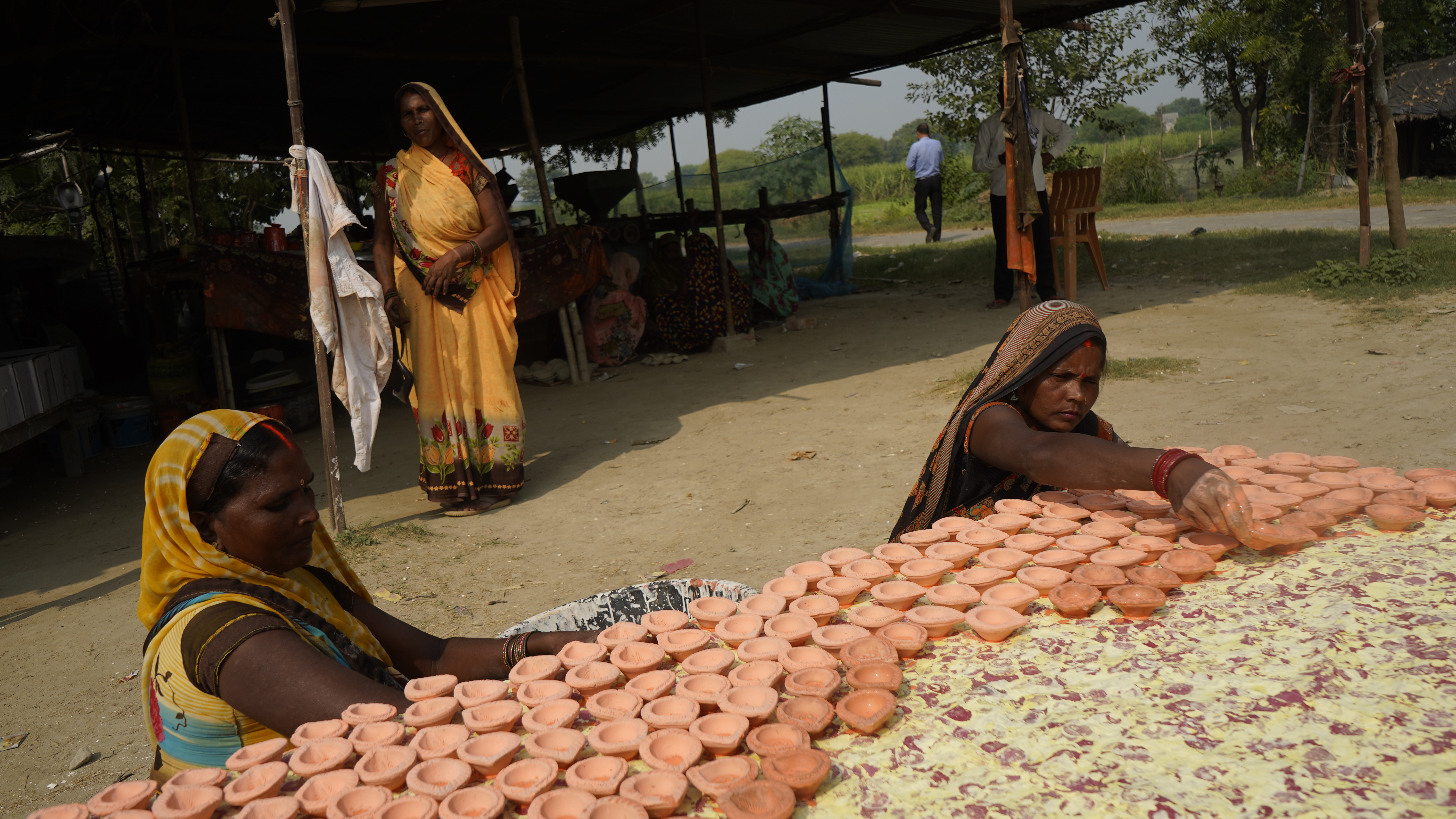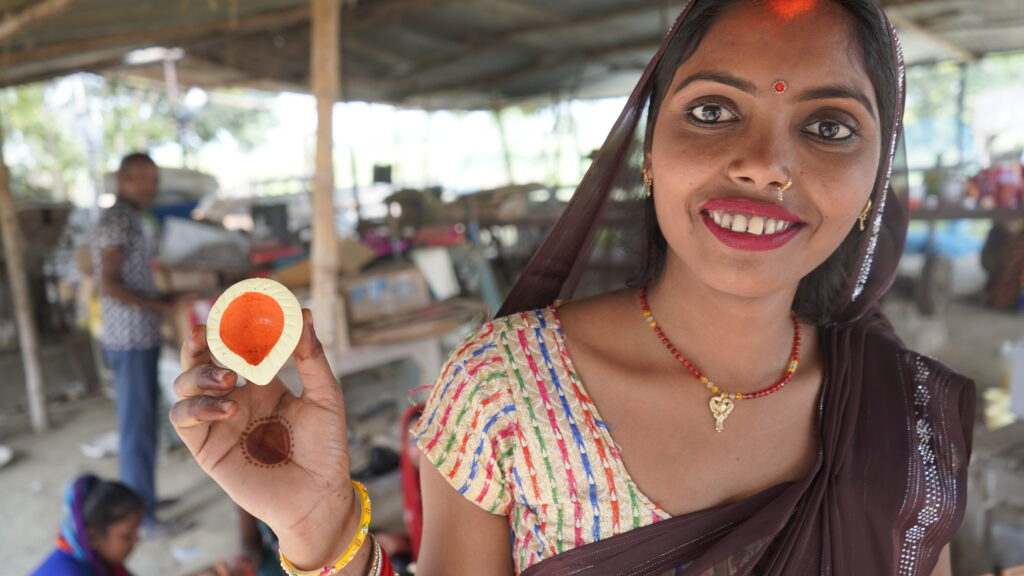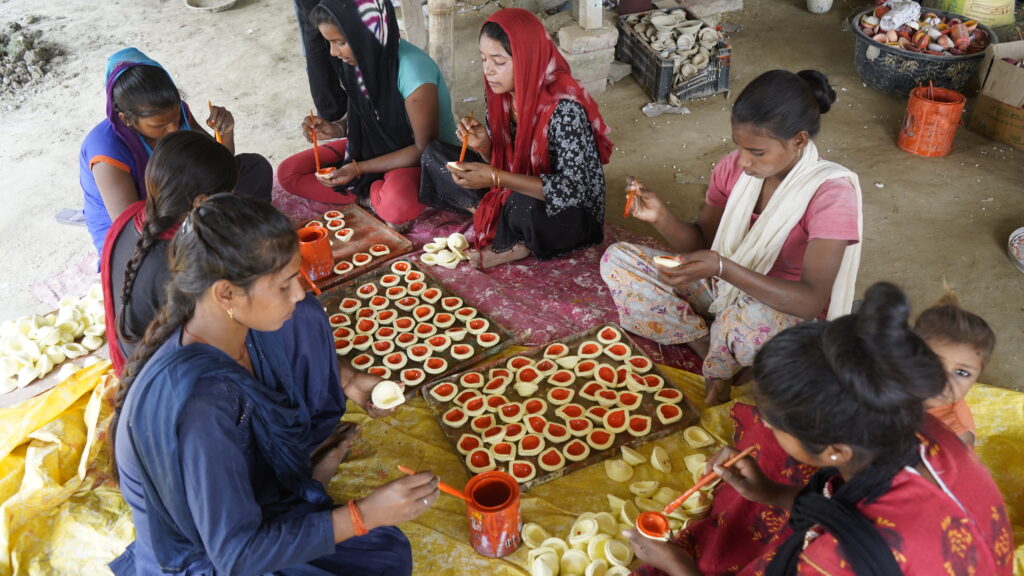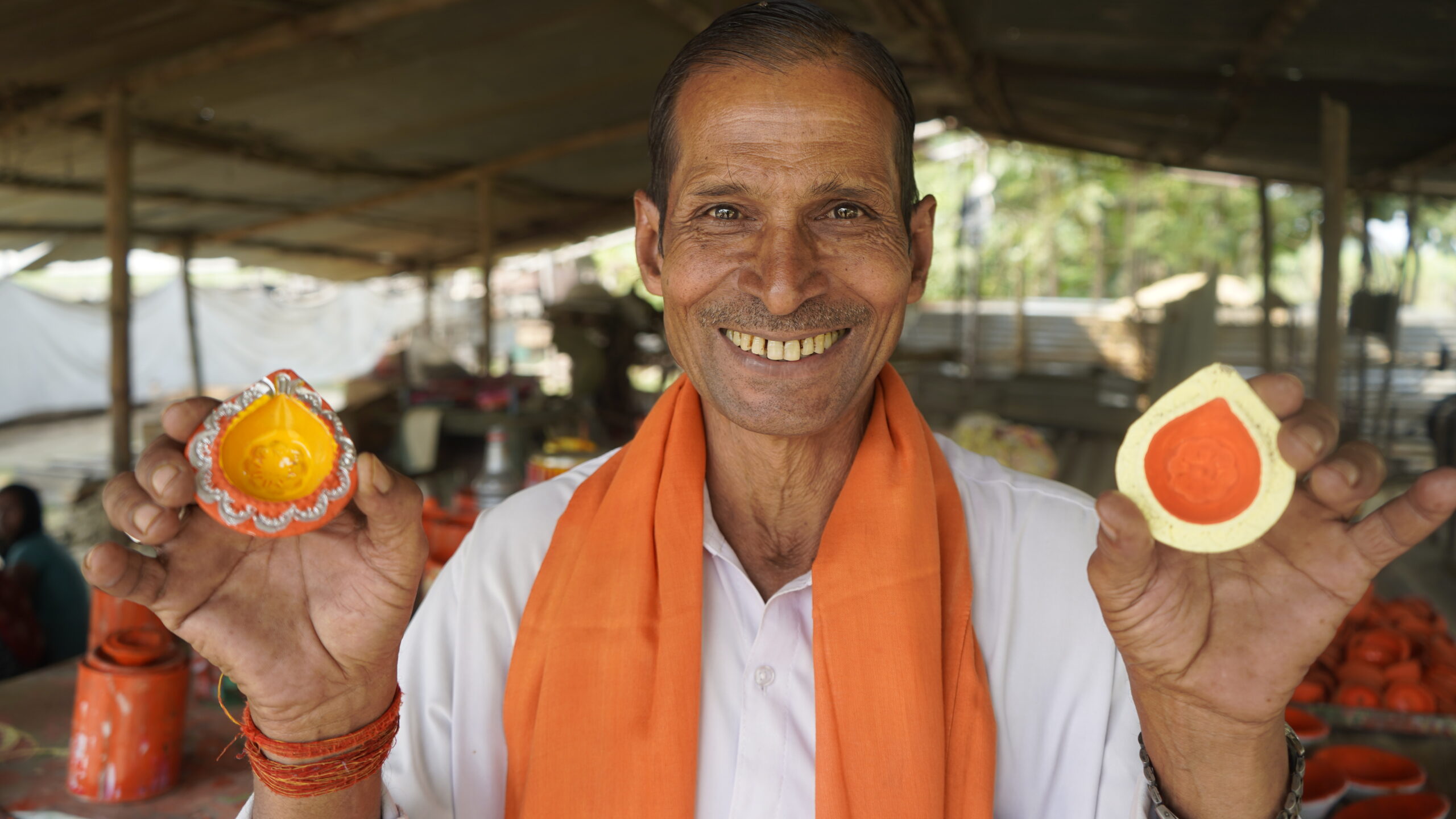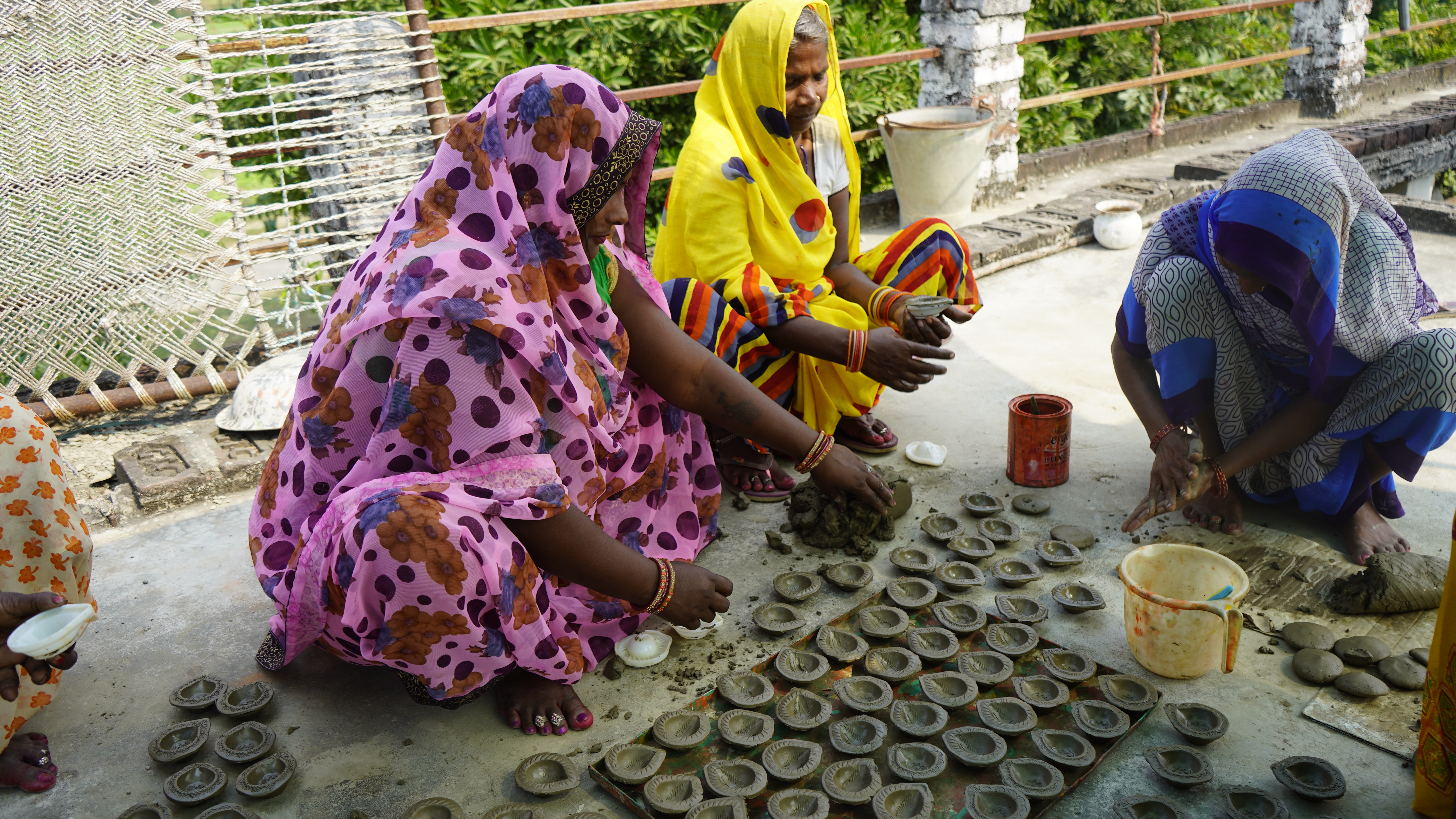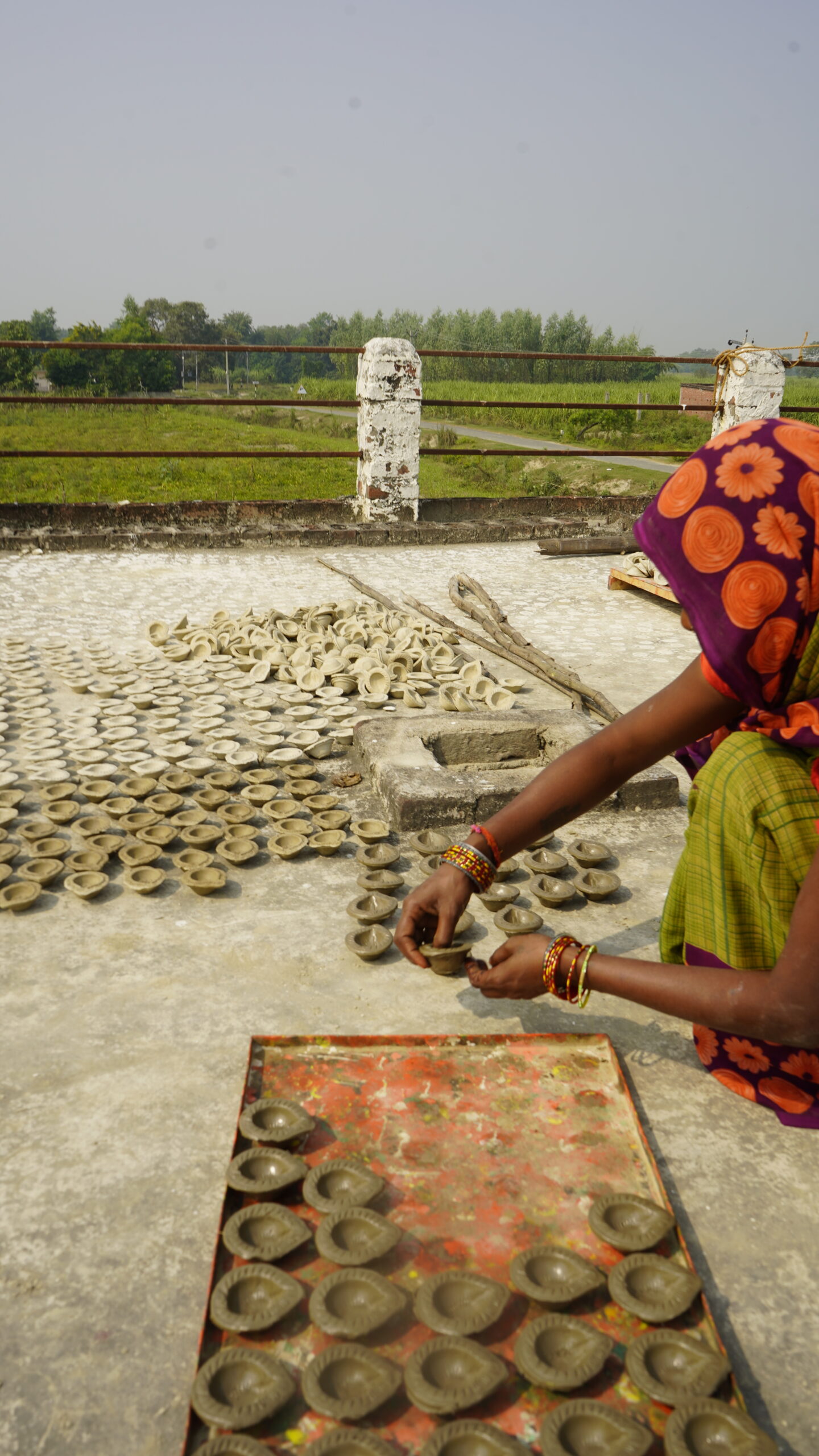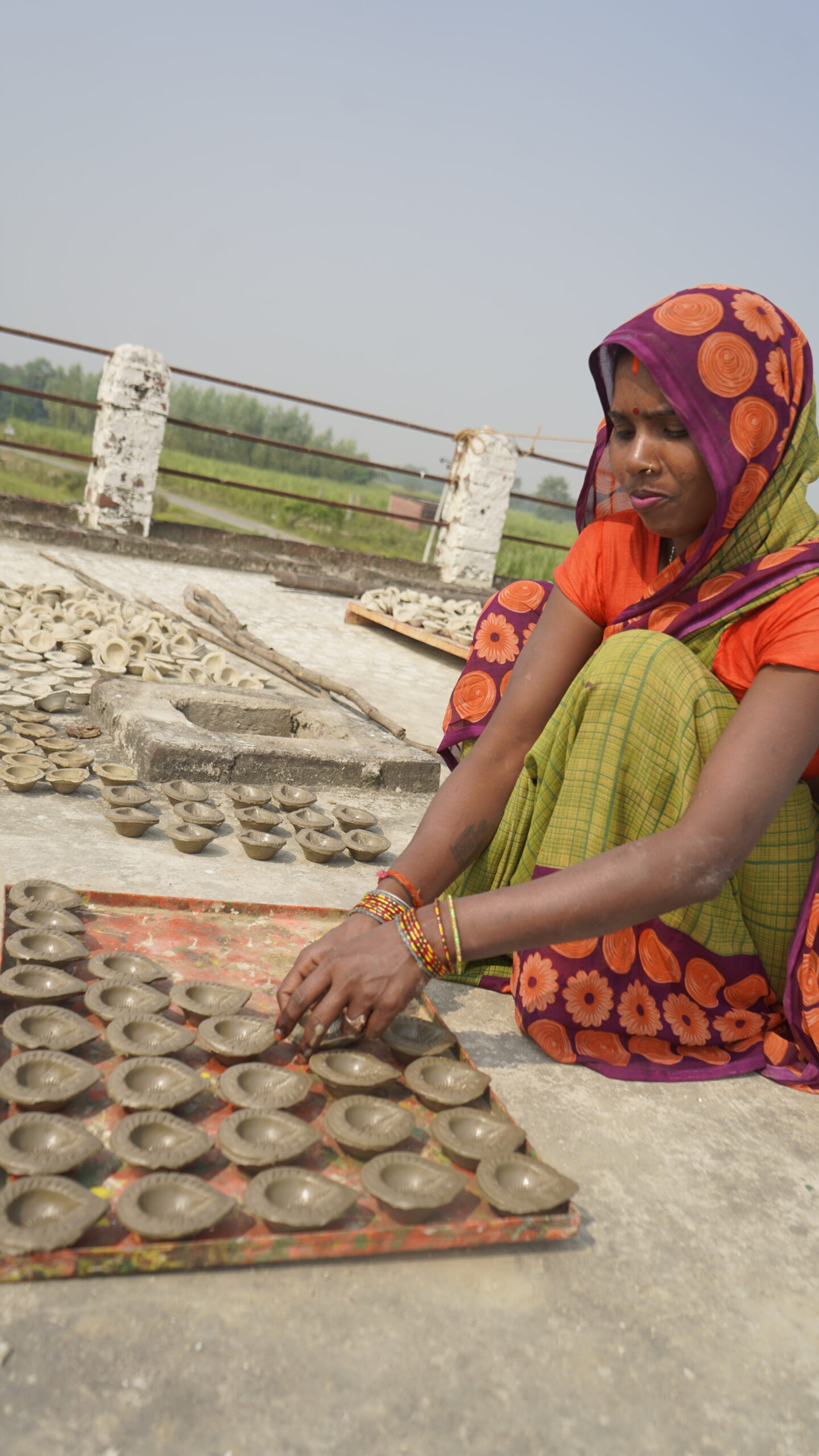A narrow road snakes through the green fields, where noisy geese cluck and flutter around due to approaching vehicles, and lazy bovines are not ready to budge despite constant honking. Small houses with cow sheds greet you at Patkhauli village in Bahraich, Uttar Pradesh. In a makeshift workshop, a determined woman with a vivacious smile under a veil and a clay pot on her head greets you. This is Sarita Nishad, a woman with a spark within her, and a desire to make a difference and empower the women of her village.
Sarita had seen the struggles of village life up close, with her husband working miles away in Mumbai, and the women around her bound by the chains of tradition. Vishwanath, a 55-year-old chef who had returned to his village from Canada, shared her vision of contributing to the welfare of his people. With a grand vision in mind, he built a cowshed to produce organic fertilizers and generate employment. However, the organic fertilizer business was a loss-making venture.
Seeing potential in the abundant cow dung, Vishwanath thought of using it to make Diyas (traditional Indian lamps). He needed manpower, and Sarita gathered the women of the village, inspiring them to join this venture. They faced resistance, with the elders questioning their abilities and societal norms challenging their ambition. Sarita was unwavering, knowing that this was their path to empowerment.
Troubles were plenty, especially in Sarita’s household. Her mother-in-law was sceptical and unwilling to let her step out and break the traditional mould. However, Sarita’s perseverance and the visible change in the lives of other women in the village slowly won her over. She too joined the lamp-making, contributing to the family income. Sarita’s leadership and determination ignited a spark, and the word spread in the village. From grandmothers to newlywed bahus joined this venture.
This workforce of 60 women registered their initiative as ‘Govardhan Agarbatti’, and the cowshed transformed into a hub of activity and hope. With time, the quality of the lamps improved, and the venture started gaining momentum. Then came the big break – an order of 50,000 diyas from the Finance wing of Piramal Enterprises Limited. Under Sarita’s guidance, the women worked tirelessly, pouring their heart and soul into every lamp they made. The order was a success, leaving the customers impressed and the women empowered. The 50,000 diyas crafted by 60 strong women left for Mumbai in a truck, an emotional moment for everyone who had been a part of this journey, the women sang geets and prayed hard for the success of the venture.
The financial model was a testament to the women’s commitment towards the welfare of the community and the environment. They distributed sixty per cent of the profits among themselves, while the remaining 40% was reinvested in taking care of the cows and the cowshed, including the costs of colouring and packaging.
Everyone in the village was delighted to see the smiles on the faces of these women who have shown remarkable resilience, igniting hope in their community like a brightly lit Diya.
